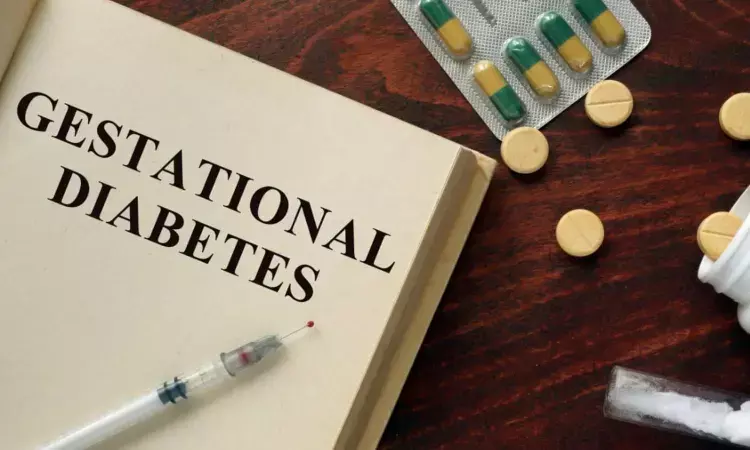- Home
- Medical news & Guidelines
- Anesthesiology
- Cardiology and CTVS
- Critical Care
- Dentistry
- Dermatology
- Diabetes and Endocrinology
- ENT
- Gastroenterology
- Medicine
- Nephrology
- Neurology
- Obstretics-Gynaecology
- Oncology
- Ophthalmology
- Orthopaedics
- Pediatrics-Neonatology
- Psychiatry
- Pulmonology
- Radiology
- Surgery
- Urology
- Laboratory Medicine
- Diet
- Nursing
- Paramedical
- Physiotherapy
- Health news
- Fact Check
- Bone Health Fact Check
- Brain Health Fact Check
- Cancer Related Fact Check
- Child Care Fact Check
- Dental and oral health fact check
- Diabetes and metabolic health fact check
- Diet and Nutrition Fact Check
- Eye and ENT Care Fact Check
- Fitness fact check
- Gut health fact check
- Heart health fact check
- Kidney health fact check
- Medical education fact check
- Men's health fact check
- Respiratory fact check
- Skin and hair care fact check
- Vaccine and Immunization fact check
- Women's health fact check
- AYUSH
- State News
- Andaman and Nicobar Islands
- Andhra Pradesh
- Arunachal Pradesh
- Assam
- Bihar
- Chandigarh
- Chattisgarh
- Dadra and Nagar Haveli
- Daman and Diu
- Delhi
- Goa
- Gujarat
- Haryana
- Himachal Pradesh
- Jammu & Kashmir
- Jharkhand
- Karnataka
- Kerala
- Ladakh
- Lakshadweep
- Madhya Pradesh
- Maharashtra
- Manipur
- Meghalaya
- Mizoram
- Nagaland
- Odisha
- Puducherry
- Punjab
- Rajasthan
- Sikkim
- Tamil Nadu
- Telangana
- Tripura
- Uttar Pradesh
- Uttrakhand
- West Bengal
- Medical Education
- Industry
Maternal haemodynamics may not predict pharmacological treatment requirement in gestational diabetes: Study

Gestational diabetes mellitus (GDM) is frequently observed as a common medical condition during pregnancy. Recent observational study examined the relationship between maternal haemodynamics and the need for pharmacological treatment in women with gestational diabetes (GDM). The researchers compared maternal haemodynamics, including heart rate and pulse wave velocity, between women with GDM who remained on dietary treatment and those who required pharmacological management such as metformin and/or insulin.
The study included 120 women with GDM. Maternal booking BMI was identified as having a causative influence on treatment requirement, with each unit increase in BMI increasing the odds of needing pharmacological therapy by 12%. The raw values of maternal heart rate and pulse wave velocity were both significantly higher in the group requiring pharmacological management compared to the dietary-only group, but these relationships did not remain significant in the causal logistic regression analysis.
Causal Relationships and Maternal Haemodynamic Measurements
No significant causal relationships were found between other maternal haemodynamic measurements, such as cardiac output, total peripheral resistance, and augmentation indices, and the need for pharmacological treatment of GDM. This is the first study to demonstrate a causative, rather than simply associational, relationship between maternal BMI and the requirement for pharmacological management of GDM.
Implications for Maternal Weight Control and Future Research
The findings highlight the importance of pre- and peri-conception weight control in preventing the need for pharmacological treatment of GDM. However, the results do not support a role for measurement of maternal hemodynamics in predicting which women with GDM are likely to require pharmacological management. Further research is needed to fully elucidate the complex relationships between maternal characteristics, cardiovascular adaptations, and treatment requirements in GDM.
Key Points
Here are the 6 key points from the research paper:
1. The study examined the relationship between maternal haemodynamics (heart rate and pulse wave velocity) and the need for pharmacological treatment in women with gestational diabetes (GDM).
2. The study found that maternal booking BMI had a causative influence on the treatment requirement, with each unit increase in BMI increasing the odds of needing pharmacological therapy (such as metformin and/or insulin) by 12%.
3. While the raw values of maternal heart rate and pulse wave velocity were significantly higher in the group requiring pharmacological management compared to the dietary-only group, these relationships did not remain significant in the causal logistic regression analysis.
4. No significant causal relationships were found between other maternal haemodynamic measurements, such as cardiac output, total peripheral resistance, and augmentation indices, and the need for pharmacological treatment of GDM.
5. This is the first study to demonstrate a causative, rather than simply associational, relationship between maternal BMI and the requirement for pharmacological management of GDM.
6. The findings highlight the importance of pre- and peri-conception weight control in preventing the need for pharmacological treatment of GDM, but the results do not support a role for measurement of maternal hemodynamics in predicting which women with GDM are likely to require pharmacological management.
Reference –
Abigail R. Anness, Michael Foster, Mohammed W. Osman, David Webb,Thompson Robinson, Asma Khalil, Neil Walkinshaw & Hatem A. Mousa (2024) Do maternal haemodynamics have a causal influence on treatment for gestational diabetes?, Journal ofObstetrics and Gynaecology, 44:1, 2307883, DOI: 10.1080/01443615.2024.2307883
MBBS, MD (Anaesthesiology), FNB (Cardiac Anaesthesiology)
Dr Monish Raut is a practicing Cardiac Anesthesiologist. He completed his MBBS at Government Medical College, Nagpur, and pursued his MD in Anesthesiology at BJ Medical College, Pune. Further specializing in Cardiac Anesthesiology, Dr Raut earned his FNB in Cardiac Anesthesiology from Sir Ganga Ram Hospital, Delhi.
Dr Kamal Kant Kohli-MBBS, DTCD- a chest specialist with more than 30 years of practice and a flair for writing clinical articles, Dr Kamal Kant Kohli joined Medical Dialogues as a Chief Editor of Medical News. Besides writing articles, as an editor, he proofreads and verifies all the medical content published on Medical Dialogues including those coming from journals, studies,medical conferences,guidelines etc. Email: drkohli@medicaldialogues.in. Contact no. 011-43720751


